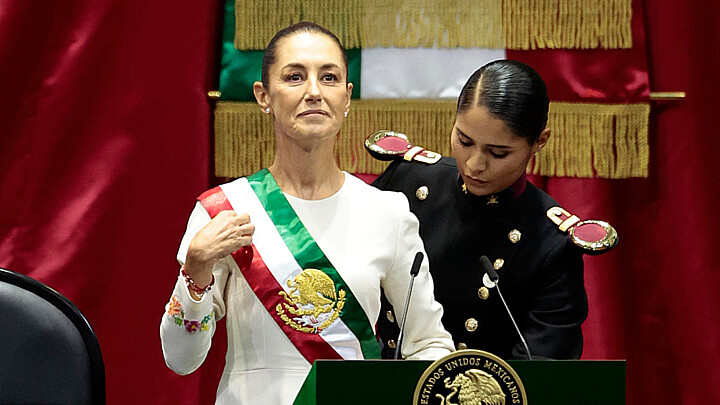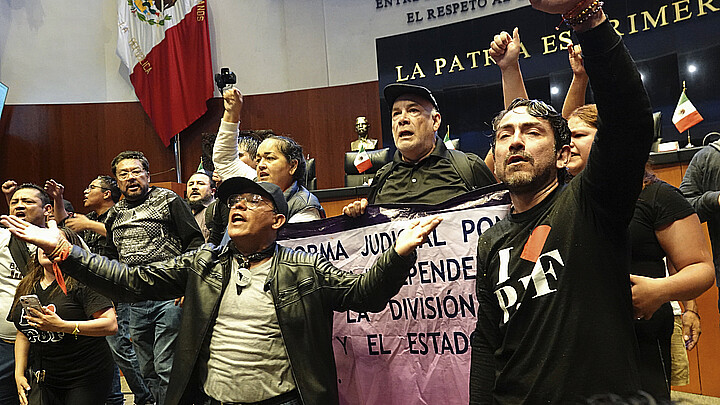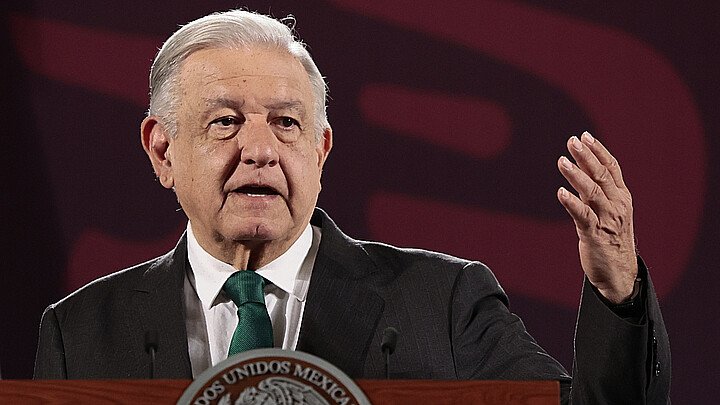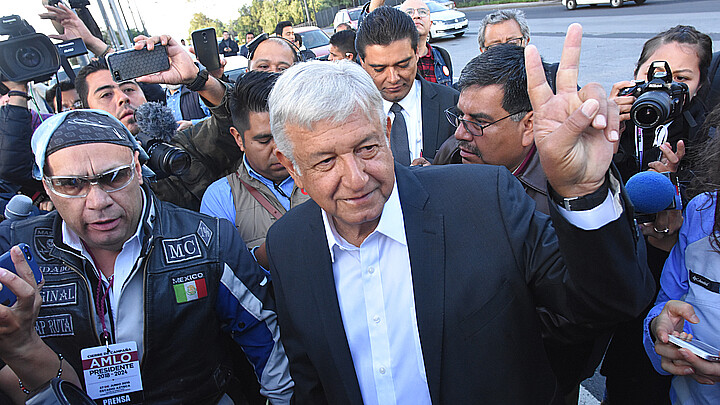Politics
State Dept. contradicts López Obrador, says fentanyl is manufactured in Mexico
"Despite the repeated denials of Mexican President Andrés Manuel López Obrador, the head of the anti-drug office at the US Department of State maintains that 'fentanyl is indeed manufactured in Mexico."
August 9, 2023 11:29pm
Updated: August 9, 2023 11:31pm
Amidst a backdrop of persistent denials from Mexican President Andrés Manuel López Obrador, a resolute stance has been maintained by the head of the anti-drug division at the U.S. Department of State that "fentanyl's production within Mexico is an irrefutable fact."
"I have personally traveled to Mexico and witnessed the production of both methamphetamines and fentanyl. We are putting forth our utmost effort in collaboration with our Mexican counterparts to impede the trafficking of these substances," said Todd Robinson, Deputy Assistant Secretary for International Narcotics and Law Enforcement Affairs in an interview with EFE.
Robinson also emphasized that "the amassed evidence corroborates that indeed, fentanyl's manufacturing hub is situated in Mexico, while its building blocks are traced back to China."
Fentanyl, a synthetic opioid of unprecedented potency, surpassing morphine's potency by fiftyfold, stands as the linchpin behind the most calamitous drug crisis in U.S. history, claiming over 70,000 lives to fatal overdoses in the preceding year.
The Biden administration maintains that Mexican syndicates, particularly the Sinaloa and Jalisco New Generation cartels, orchestrate the covert manufacturing of fentanyl, cleverly harnessing legitimate chemicals and cosmetics procured from China. These syndicates then subsequently maneuver the drug's distribution and trade, infiltrating U.S. borders.
The diplomat indicated that the Biden administration is asking "Mexico to intensify efforts against drug traffickers." They also recognize their "responsibility" in reducing drug demand within the U.S. and dismantling domestic drug trafficking networks.
But a counter-narrative emerges from López Obrador, staunchly denying Mexico's role as a fentanyl factory. His stance asserts that China directly dispatches the drug to the United States, with Mexico serving as a mere transit passage.
Robinson rejects that assertion, underscoring that collaborative efforts between the two nations prove "resoundingly effective," spanning both technical intricacies and political dynamics.
"So I would say our cooperation is good. Can it be better? It can always be better, but we are very pleased to be able to work with our Mexican colleagues," the State Dept. official said.
In contrast, cooperation with China presents challenges. Beijing has refrained from participating in the global coalition against fentanyl, spearheaded by U.S. Secretary of State Antony Blinken in July, which involves more than 70 countries, including Mexico.
Robinson contends that China could substantially amplify its contributions by facilitating the exchange of data concerning chemical distribution, ensuring meticulous product labeling, and instituting vigilant surveillance over recipients.
Reflecting upon China's past cooperation in 2019, which led to a decline in fentanyl trafficking, Robinson laments the present absence of such efforts, allowing for the unbridled dispersion of these chemicals globally.
Robinson also highlighted López Obrador's appeal to his Chinese counterpart, Xi Jinping, dispatched in April, beseeching for "support" in tackling the fentanyl scourge—endeavors acknowledged as "highly encouraging" by Washington.
The anti-drug chief also defended the idea that combating fentanyl should not distract from the fight against other drugs that are also "a problem," such as cocaine.
"It would be a mistake to say that cocaine is no longer a problem. It remains a problem in the United States and in Europe, and it's a growing problem in Asia," he warned.
The U.S. stopped satellite monitoring of coca cultivation fields in Colombia this year, a metric used by Washington for years to assess the results of its anti-drug policy.
However, Robinson said that this is a "temporary" pause and that it is expected to be resumed next year. Additionally, the Department of State continues to monitor coca fields through the annual report published by the U.N. on the subject.
The diplomat explained that what Colombian President Gustavo Petro has asked the United States for in his new comprehensive drug approach is to ensure the security of rural communities and to punish the environmental crimes of drug traffickers.
"We are more than happy to work with him in all these areas, and we believe we have great partners in Colombia," Robinson acknowledged.










